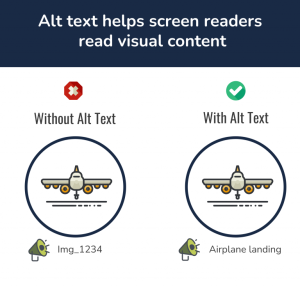How to Use Alt Text for SEO
How to Use Alt Text for SEO
In early December, Google’s John Mueller discussed the utility of alt text in SEO and why it is still beneficial even in the days of AI-driven image identification. Below we provide a brief on how proper usage of alt text can be achieved as follows.
What is Alt Text?
Describing images using other text, usually placed in between HTML tags, is what is commonly referred to as alt text or probably alternative text. For the visually impaired, it enhances their experience and supports the indexing of images by the search engines hence effective SEO.
Why Alt Text Matters for SEO
According to Mueller, alt text relates images with the remaining contents of the page. Traditional machine learning when identifying images fails to look into the context of the image a lesson AI offers. For instance, when we look at a picture of the beach, the possible tags are tourism or an oil spill. The use of the alt tag is important to guarantee that search engines will classify images appropriately.

Why AI Isn’t Enough
When relying on AI to generate the alt text, one finds oneself dealing with such descriptions as “beach picture”. To this, Mueller frowns at it stating that it holds more value than this as alt text crafted manually can hold specific information like that to the effect of ‘beachfront hotel in Miami’.
Best Practices for Alt Text
- Be Specific: Explain what you see and the connection with the content of the page.
- Use Keywords Wisely: Make use of the keywords in such a manner that they are not used maximum of the time.
- Keep It Concise: They should give concise and easily understandable details, all the same.
- Context Matters: Make sure the alt text reveals how this image relates to the content at large.
Final Thoughts
Despite this AI growth, alt text is still foundational in SEO. Your images will rank higher best when you come up with good descriptions that are more appropriate in context to the images. Doing this will also enhance enhance site usability. Do not rely on AI for alt text generation and write high-quality, keyword-specific descriptions instead.
Hi Vishnukanth,
It’s a very insightful and comprehensive post about “Alt Text”
Alt Text still plays an important role when it comes to Image SEO. Therefore, adding a proper Alt Text for our images helps us to get our images to rank higher in the SERP results. Also, It’s recommended to keep our Alt Text length below 100 characters to make it search engine-friendly and reader-friendly!
Hey Vishnu,
This post provides some great insights into the importance of using alt text for SEO! I appreciate the tips on best practices, especially how descriptive alt text can enhance accessibility and improve search rankings.
One question I have is about best practices: do you recommend a specific character limit for alt text descriptions? Also, how can we balance being descriptive without keyword stuffing?
Thanks for the valuable information!


Hey @Mathushika Mathanakumar
Great question! In case of alt text, it is preferred that it covers not more than 125 characters. This makes sure that the text on the image is short enough to be convenient for screen readers while at the same time, providing enough description with the images. When writing alt text, authors should concentrate on providing information about content in images what it depicts and how that content is related to the rest of the material.
It is important to also think how a human will describe the image and therefore avoid keyword stuffing. Keywords are better to be used only in cases when they will look good in the picture and add value. It is not the intention to stuff the article with keywords because it is a waste of the reader’s time.
Hope this helps! 😊